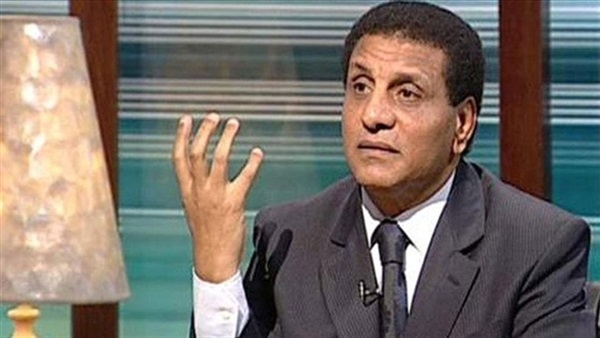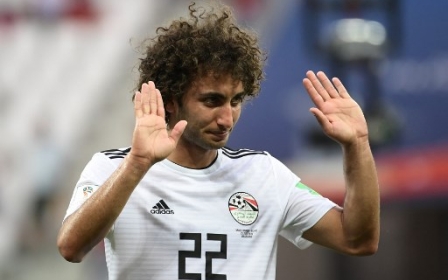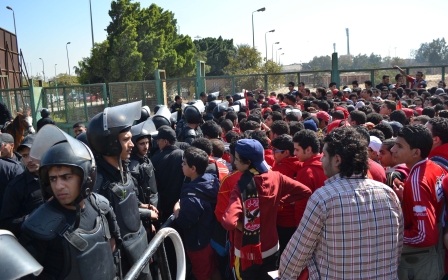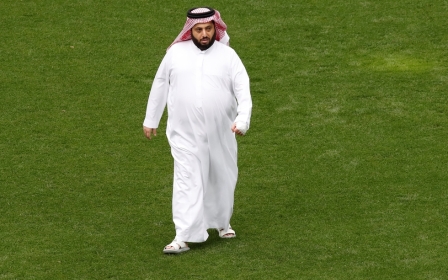Put army in charge of Egyptian football, says former coach after Cup of Nations defeat

A former Egyptian football manager has called on the army to run the country’s football federation "with an iron fist" after the hosts' shock defeat in the African Cup of Nations on Saturday.
Egypt's involvement in the tournament came to an end in round 16 in front of almost 75,000 mostly Egyptian fans at the Cairo International Stadium where a goal five minutes from time was enough to earn South Africa a 1-0 win.
While the team did not concede a goal in the group stage, pundits had criticised the team’s performance and management from the beginning of the tournament, with Liverpool star Mohamed Salah notably out of form despite scoring two goals.
“The state has done everything but the football federation and the players have done nothing,” Farouk Gaafar, who managed the national team between 1996 and 1997, said during an interview with pro-government TV host Ahmed Moussa on Sunday.
“There is nothing better than the discipline of the armed forces… football needs to be run with an iron fist,” he added.
New MEE newsletter: Jerusalem Dispatch
Sign up to get the latest insights and analysis on Israel-Palestine, alongside Turkey Unpacked and other MEE newsletters
Gaafar, who previously served as the manager of the army-sponsored Talaee el Geish (Army’s Vanguards) Sports Club for seven years until 2013, said he believed that having a military officer as the leader of the Egyptian Football Federation (EFA) could ensure the efficiency of the team.
Gaafar said the federation leadership needs “knowledge, culture and discipline”, qualities that he said could only be found in the armed forces.
Following Saturday’s game, EFA head Hani Abu Rida announced the sacking of Mexican coach Javier Aguirre, who told reporters that he acknowledged responsibility for the defeat.
Abu Rida also resigned and called on all the board members of the EFA to resign as “a moral obligation”.
Gaafar pointed out that the lack of accountability from EFA after Egypt’s three defeats and an early exit from the World Cup in Russia last year contributed to the team’s continued failure.
Translation: "The militarisation of football: Farouk Gaafar, former Egypt and Zamalek star, has called on the Armed Forces to lead the football federation, holding the federation and players responsible for the early exit of the team from the African Cup." Photo shows the Egyptian Minister of Defence Mohamed Zaki meeting with the national team one day before their last game.
Gaafar’s comments have sparked criticism by Egyptian football fans and analysts, who have attributed the team’s failure to EFA’s corruption which they say has worsened following the 2013 military coup by general-turned-president Abdel Fattah el-Sisi.
Football commentator Alaa Sadek said in response to Gaafar that the Egyptian army was in charge of heading the EFA between 1936 and 1967, but that Egypt did not reach the World Cup at that time.
“From 3 July 2013 [military coup], the EFA has turned into an army barracks, and failure is both local and international,” he said in a Facebook post on Monday.
Al-Masreyoon newspaper editor Gamal Sultan, a Sisi critic, has pointed out that calls to hold the EFA accountable only emerged after the team’s defeat.
“Only last week, the EFA was clean, acceptable and patriotic. They were received by Sisi and the minister of defence and celebrated only when their victories served the image of the regime. One week later, the EFA has become corrupt and wanted for investigations. These are the standards of justice in today’s Egypt.”
Egypt is the most successful national side in the history of the Nations Cup, winning the continental title a record seven times, including three times in a row between 2006 and their most recent win in 2010.
Football world governing body FIFA forbids political interference in football, with governments that interfere in the affairs of national football federations risking suspension from international tournaments.
Middle East Eye delivers independent and unrivalled coverage and analysis of the Middle East, North Africa and beyond. To learn more about republishing this content and the associated fees, please fill out this form. More about MEE can be found here.




